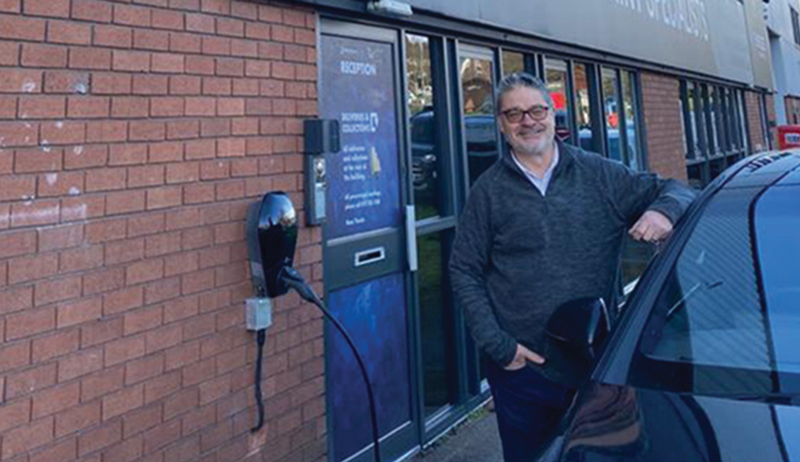The road to becoming more environmentally-friendly tends to be littered with obstacles. Here, FaberExposize UK and Northern Flags MD Iain Clasper-Cotte provides a first-hand account of his sustainability journey so far. Perhaps it can help you plan yours.
This may resonate. As a business we have spent the past few years looking at how we can become ever more sustainable and environmentally friendly. We have had many companies and consultants approach us offering to offset with tree planting, installing solar panels and wind generation, doing carbon audits and, of course, the current thorny one of moving our fleet to electric cars - a subject that turns me into Victor Meldrew.
We decided that we would initially try and look at all the obvious easy wins before investing in outside help. Why pay someone to assist with the obvious?
We looked at energy - we are in a rented building and we expect to relocate at the end of the lease so it was not cost-effective to look at our own solar or wind generation strategy as the pay back times were too long financially.
We moved to a renewable energy supply. In the first contract this was a 10% premium against our previous contract. Citing the Ukrainian impact on power costs, Drax, the supplier we’d chosen, then made a massive above-market increase at our renewal point. We spent a month searching for the best green solution that was not extortionate and have ended up with EDF on a contract that is costing us £25,000 more than what it would if we had gone for a fully renewable service!
It is a premium we decided we had to bear, but it was a painful one. Ironically, it was more expensive even though the costs are not impacted by the price of oil. The drive to buy green energy has meant that this inflation has been even higher than gas or oil.
We have invested heavily in new printers to ensure lower running costs. We have insulated our printroom and put heat retentive drapes into our finishing mezzanines. We have moved to Greenguard and water-based inks, and we have been on a massive learning curve on substrates. We have looked at better planning production on energy heavy processes such as sublimation.
We have also developed an entire range of eco-friendly products - called Enviro - which offers sustainable alternatives to each of our core products. They are made from various recycled materials, including post-consumer plastic bottles, and can all be recycled after their end of life.
We moved to electric cars, never expecting them to be as good as the brochure, but we had not realised the range immediately falls by 20% as you are not supposed to fully charge them!
The so called 60kW chargers are not fast and take an hour to fill a salesperson’s car by 45% of range - effectively taking a call a day out of their productivity. Cost per mile on a paid-for charger is three times what it was with a diesel.
While clients doing green audits expect us to use electric vehicles, are they really that green when you look at how they are manufactured? My previous diesel hybrid in reality was probably far better for the planet than a fully electric.
And therein lies one of the challenges of this move to green - many of the headline-grabbing changes that we are making as businesses are not as impactful as thought.
Many polyester fabric manufacturers argue that their efficiently produced virgin polyester is better for the environment than a fabric made from recycled bottles due to the energy and materials required to process dirty bottles. I see the arguments against electric cars and certain substrates and business changes that make headlines but I think this misses the bigger benefit of making these changes. It is all about the mindset.
It is about changing our culture and our clients’ culture to make the environment a priority. It is important that this does become a key way in which we all change and, as ever, change comes in different stages. Currently, electric vehicles and products made from recycled waste show clearly that we as a business are trying. As the market becomes more educated and informed then it will become easier to create clearer strategies with our partners that factor in everything in the long supply chain.
As a business we are now well on the way to ISO14001 accreditation and our first carbon audit. It would have been premature to do these before we got our ducks in a row. All these changes can help us create our strategy for the next stage of our green journey.
In the meantime, I will keep moaning about my car bought with a 385-mile range but, delivering a 240-mile range while we are working towards a cleaner, more sustainable business future.


